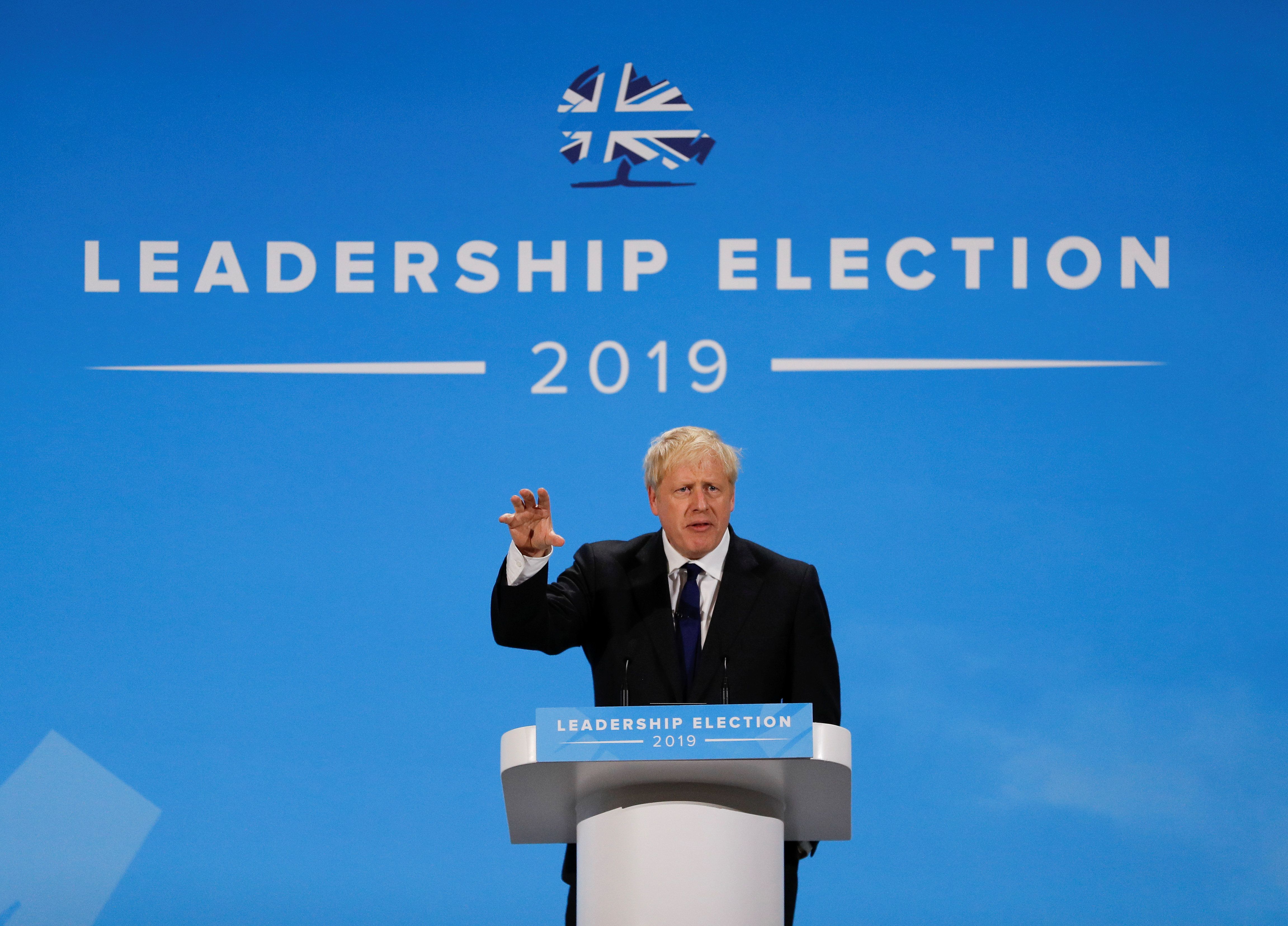Later today, the eccentric, gaffe-prone, artfully disheveled master political operator Boris Johnson will learn he's going to be the United Kingdom's next prime minister. Having won a majority of votes among the 130,000 members of the Conservative party – a 0.3 percent slice of the population that's older, whiter, and more favorable to Brexit than most Britons – he will take office tomorrow.
Johnson once famously said he's "pro cake and pro eating it too" – so here's what'll land on his plate on day one:
Tensions with Iran: Last week, Iran seized a British tanker that it said had entered its territorial waters, a claim that London denies. Johnson will have few good options to respond: there isn't much left to sanction in the Iranian economy, while a more robust military response in the region risks further escalation or unintended consequences.
But the broader question is whether Johnson will continue to align the UK's position with other European powers that want to preserve, somehow, the 2015 Iran nuclear deal that Donald Trump walked out of, or to run the risk of open conflict with Iran by adopting Washington's more confrontational policy of "maximum pressure."
US-UK relationship: The so-called "special relationship" between the US and UK is under pressure. Johnson and Trump—successful, unconventional provocateurs both—share a mutual admiration, but Washington has signaled that London won't get special treatment when it comes to pressuring Iran, post-Brexit trade deals, or the UK government's decision about whether to use technology supplied by Huawei, the Chinese tech giant that the Trump administration has sanctioned as a security threat. Washington has even signaled that it's not keen on protecting British ships passing through the Strait of Hormuz. With "Special" friends like these…!
And of course… Brexit: Johnson inherits precisely the same dilemma that brought down his predecessor, Theresa May. The UK is – at the moment - committed to leaving the EU, but when it came to hammering out an agreement on how to do that, the best deal that London could get from Brussels failed three times to win a vote of support in the House of Commons.
The Brexit question must be resolved by October 31 or the UK will be stuck with an economically perilous "no-deal" scenario that sends the UK crashing out of the EU with no new agreement on the future of their relationship. Johnson, for his part, has embraced that possibility much more enthusiastically than May, even if only because he believes it will boost his negotiating leverage with the EU. He seems to be betting that a game of chicken will force Brussels to reopen negotiations.
The last bite: Boris Johnson has shown that he is wily and formidable politician – can he now be a successful statesman?
- You Brexit, You Buy It - GZERO Media ›
- Brexit: How did this mess happen? - GZERO Media ›
- Will Boris Johnson Be the UK's Next Prime Minister? - GZERO Media ›
